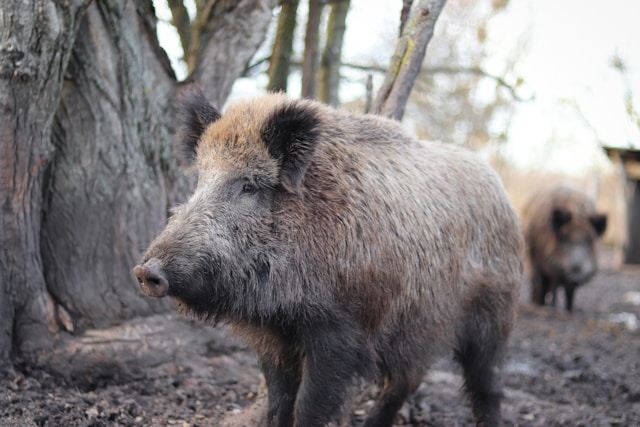Since the catastrophic explosion of the Chernobyl nuclear power plant in 1986, scientists have been carefully studying the effects of the explosion to understand the effects of radiation on the ecosystem. Although it is known that radiation can have harmful effects on health, the good news is that the levels of contamination found in animals around Chernobyl have decreased over the decades. However, researchers were puzzled by a strange anomaly: contrary to expectations, high levels of radioactive isotopes were constantly detected in wild boars living in the area. This phenomenon, called the wild boar paradox, has remained a mystery until now.
The Chernobyl disaster occurred in 1986 in northern Ukraine, when a reactor meltdown released about 5% of the radioactive reactor core into the environment. This event led to the evacuation of the surrounding area, which is now known as the Chernobyl Exclusion Zone. While the initial explosion and its immediate aftermath directly killed 31 people, the long-term effects, including cancer, are estimated in the thousands. It was the largest radiation disaster in European history.
After the disaster, scientists began monitoring the area to see how radiation affected ecosystems and how long it took for nature to regenerate. These studies were also extended to other parts of Europe affected by radioactive radiation. Over time, the general trend showed decreased radioactive contamination in most animals and plants, with the exception of wild pigs, which retained high levels of radioactive cesium-137. SciShow.
Understanding radioactive decay and contamination
Radioactive elements decay at a predictable rate known as their half-life, which is the time it takes for half of the radioactive atoms to decay. Cesium-137, one of the most dangerous isotopes released during the Chernobyl disaster, has a half-life of about 30 years. Thus, 30 years after the disaster, radiation levels are expected to have decreased by approximately half.
However, ecosystems are not closed systems. Radioactive elements move through the environment, are absorbed by plants, eaten by animals, and eventually seep into groundwater. This movement complicates the simple process of decay, especially when you consider the biological half-life, which is the time it takes for organisms to excrete half of the radioactive material they receive.
The Chernobyl paradox for wild boars
Despite a general downward trend in radioactive contamination, high levels of cesium-137 were detected in wild boars around Chernobyl more than three decades after the disaster. This persistent pollution has caused a scientific mystery. Given the half-life of cesium-137, the level of radiation for wild boars should have decreased significantly. This paradox points either to an unknown source of contamination or to a misunderstanding of how radiation moves through ecosystems.
Key to the puzzle: mushroom webs
In 2023, researchers finally found the missing piece of the puzzle. The continuing high level of radioactive contamination in wild boars has been attributed not only to the Chernobyl disaster, but also to nuclear weapons tests conducted by the Soviet Union in the atmosphere in the 1950s and 1960s. The cesium-137 resulting from these tests settled in the environment and continued to be taken up by deep-rooted fungi.
Thanks to their extensive mycelial network, fungi absorb water and nutrients from deep within the soil, thus reaching sources of pollution that plant roots cannot reach. These networks have absorbed cesium-137 from historic weapons tests and the recent Chernobyl fallout. The fungus-loving wild boars consumed cesium-137, introducing the contamination into their bodies.
These articles are also worth reading:












































